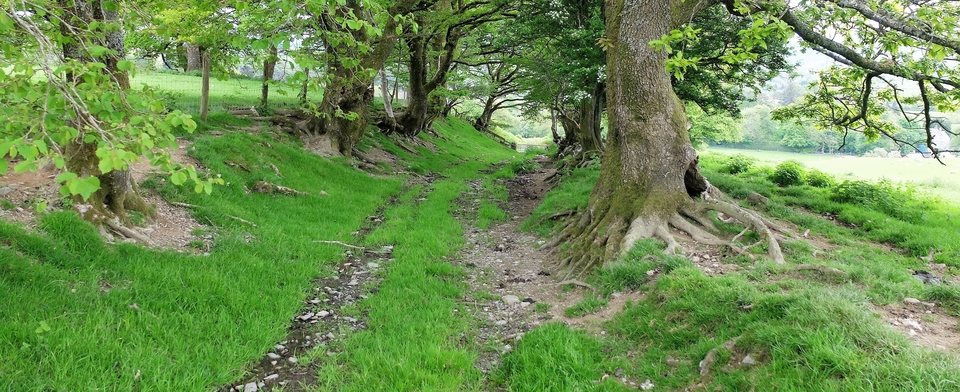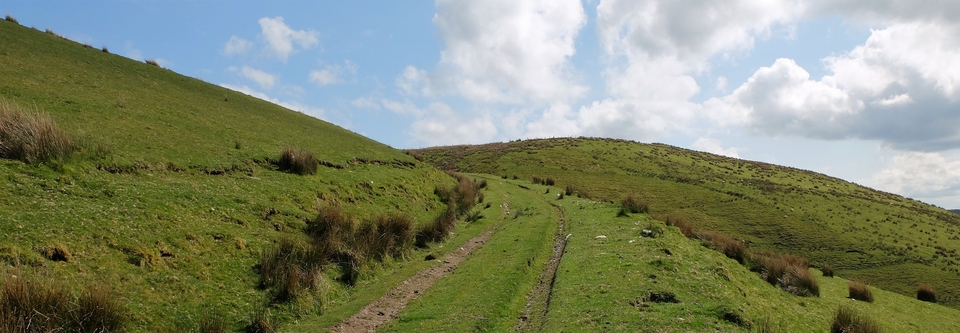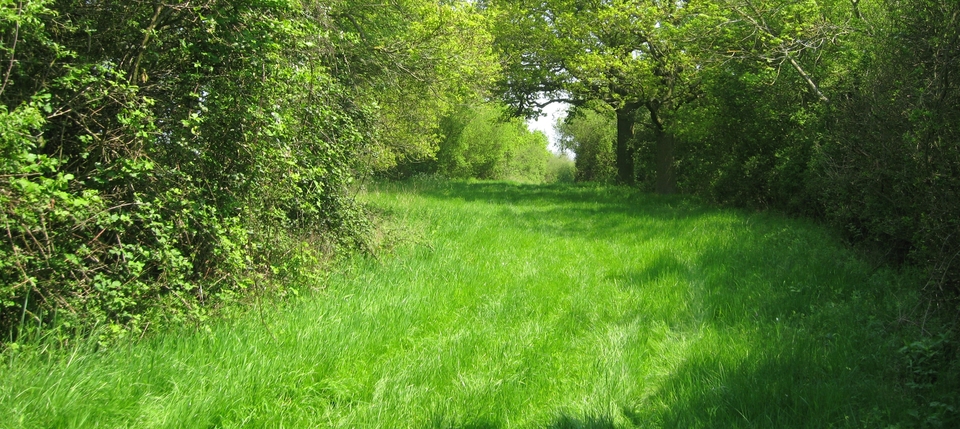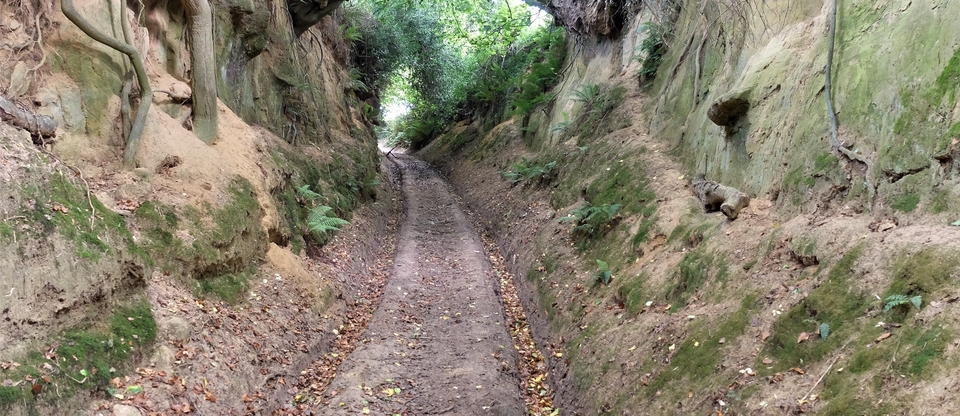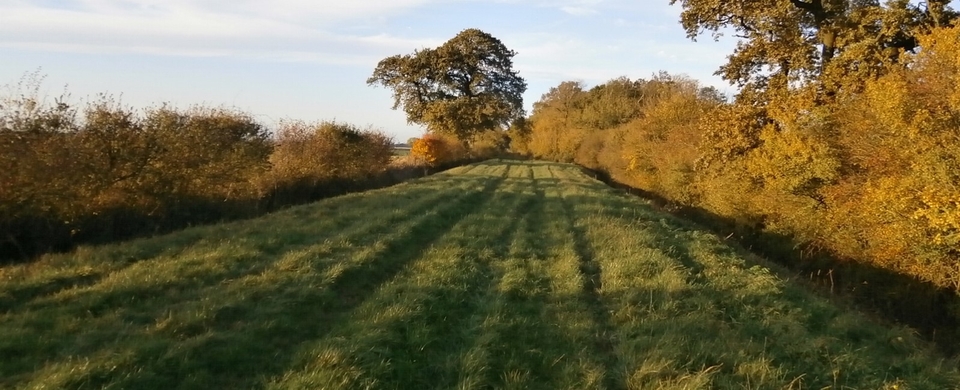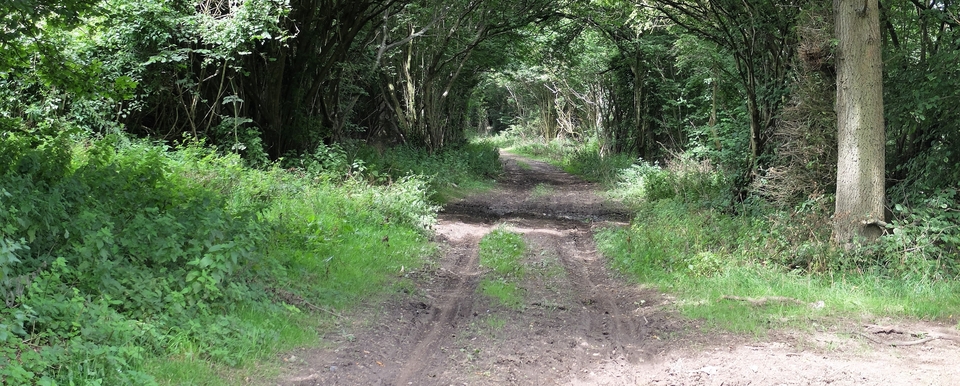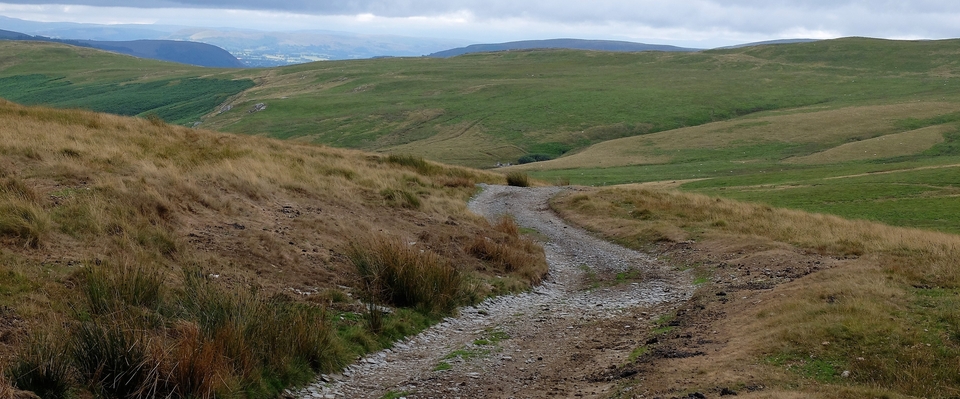Wilson's Drove
Almost out of lockdown… Meanwhile, I borrow from other men's walking.
In the 1960's, maybe later, R H Wilson wrote an article for The Countryman magazine which he called “Drovers were Tough” about the family farm near Salisbury. I read it with fascination five years ago and now I've decided to breach copyright and put some of it on the website.
I tried to contact the family, without success, but I have at least ordered Wilson's book “The Sparrow Hunters”. Hope that keeps me out of trouble. Anyway, here's the substance…
Lorries (says RHW) put the drovers out of business because the Wilsons dealt in sheep, as you do if you farm on chalk uplands. Before the lorries came, the family had been using the Wiltshire Ridgeway – “the oldest public highway in Britain” – since the late 1700s. Their head drover Bert Swatton used to say he could see 12 droves at the same time slowly gliding across the downs. What a picture of those big skies.
There were buildings and yards on The Ridgeway for beasts, and on the farm itself a loose box filled with clean straw for the drovers' bedding. (Free breakfast was expected.) In the early 1900s, the Wilsons rarely had fewer than six of their own drovers on the road at any one time, plus some freelancers (about whom more later). RHW says that when he was young he was often a drover himself, but not allowed on the longer trips. He walked sheep from Marshfield Fair to Peterborough, and sometimes as far as Hitchin, which could take two weeks. The farm was frequently short of grass, so his father would write to a dealer friend in Hitchin saying there were 200 sheep on the way. If he could sell them, well & good, if not send ‘em back. The sheep would then feed on “the long acre”, or grass verges, which were always full of keep. (As for water, the drovers always knew how to find that.)
At sheep fairs you'd find maybe 100 shepherds and drovers, all sleeping rough. Being used to long distances, they had a broader outlook than men left at home. Few could read or write, but their counting was infallible: one hand would hold the hurdle half-open as the sheep raced through; the other patted each sheep as it passed. Those who couldn't count to a hundred counted in scores.
The freelance drovers were nomads and all experienced poachers. They had dual-purpose dogs, able to control a difficult drove by day and, at night, ‘silently piloting' a hare through a gap in the hedge that had been netted. Freelancers were usually known by their nicknames. “Blacky-Topper” was the best poacher in the southern counties and much wanted by the police. He slouched as he walked so that his long arms reached his knees, a great asset when setting snares. He gave the Wilsons a demonstration once: in broad daylight he walked across a field 100 yards from them and set a dozen snares without their noticing anything unusual.
RHW's father was driving his horse & trap to Hungerford Fair and had picked up a drover. When they came to Chilton Foliat on the river Kennet, the drover asked, Could you do with some fish for your supper? Right, wait on the other side of the bridge… Two minutes later, the drover crawled up the bank with a 2lb trout he had tickled. He was soaked to the waist, but freelancers were rarely dry for long anyway.
Flash Alf, who wore a straw hat, was a cockney who brought sheep from all the big Hampshire fairs to London and crossed from Waterloo to Victoria Station with them – droving through London had to be done between 2am and 4am – on their way to the Romney Marshes. Master Drovers like Alf were often men of substance: they took full responsibility for the sheep and were paid accordingly. They carried cheque books and if any animals were missing at the end of the journey, they would pay up, many signing the cheque with an X.
A worthy master drover was Fred Lawton, based in London. For nearly 50 years, he met the Wilsons' weekly consignment of sheep & cattle at Smithfield between 2 & 4 am. They were always penned and in the correct lots when RHW's father arrived at 5am.
The Wilson farm foreman once had to take a big drove of cattle to Blenheim, for the Duke of Marlborough. It was a two-day journey, so he was given 13s 7d for the night's lodging and his railway fare home; but he had a large family and his regular wage was 12s a week. So he slept rough in the yard with the animals, reached Blenheim at 4pm the next day then walked 30-odd miles through the night, arriving back to start work at 6am. He had looked at the 13s 7d and said to himself, “My youngsters could do with this.”
Yes, they were tough.
Thanks, RHW, wherever you are. I shall enjoy The Sparrow hunters, I know, because you write with an intense feeling for the old countryside and its ways.
